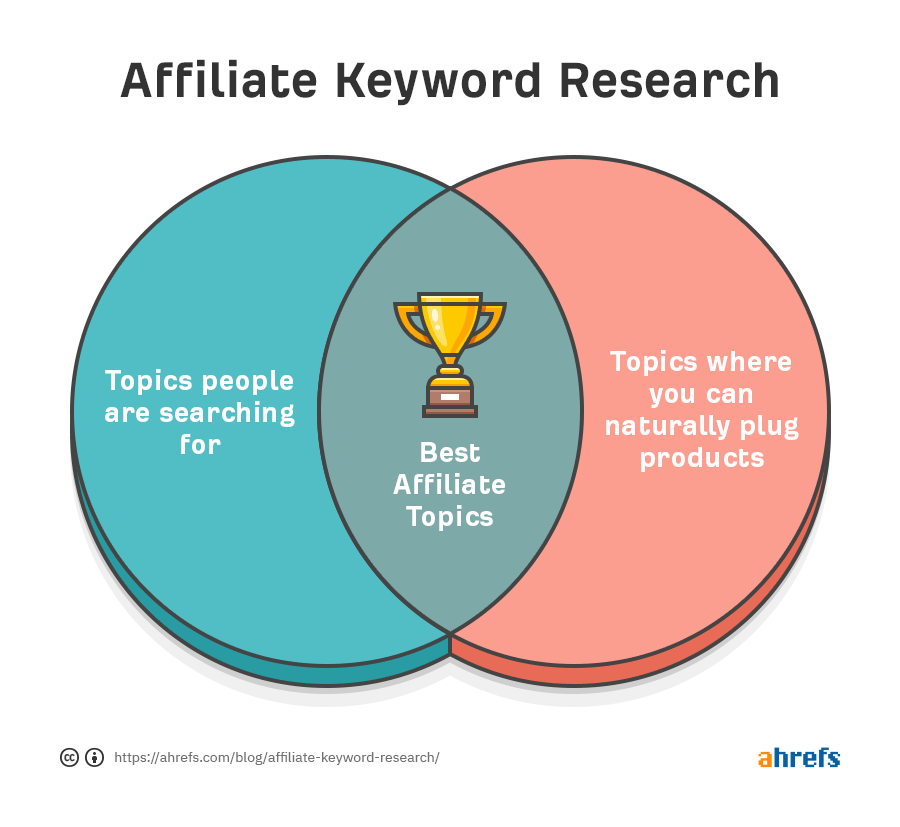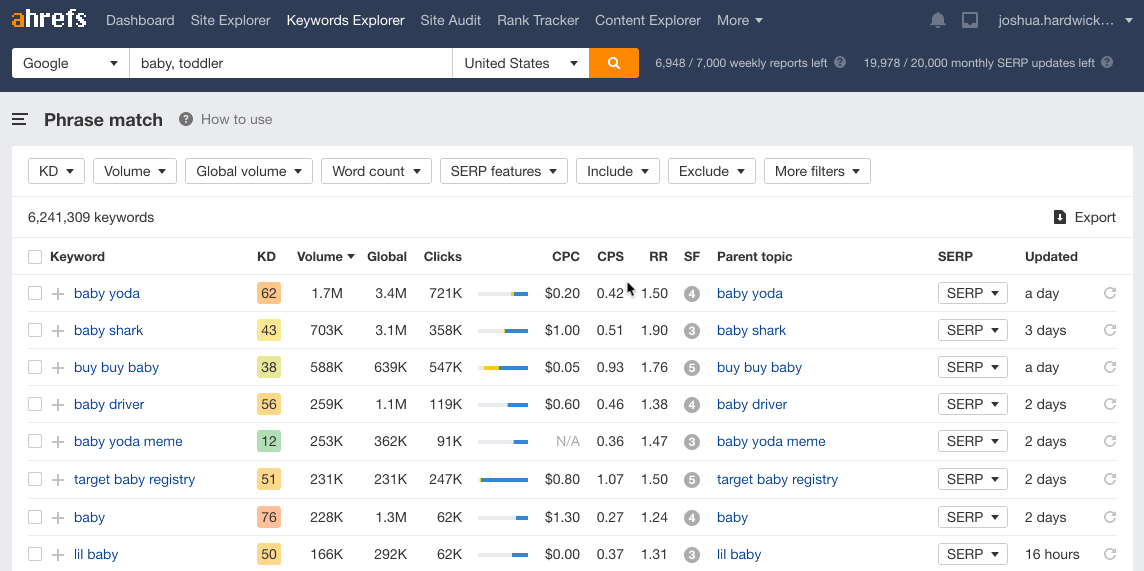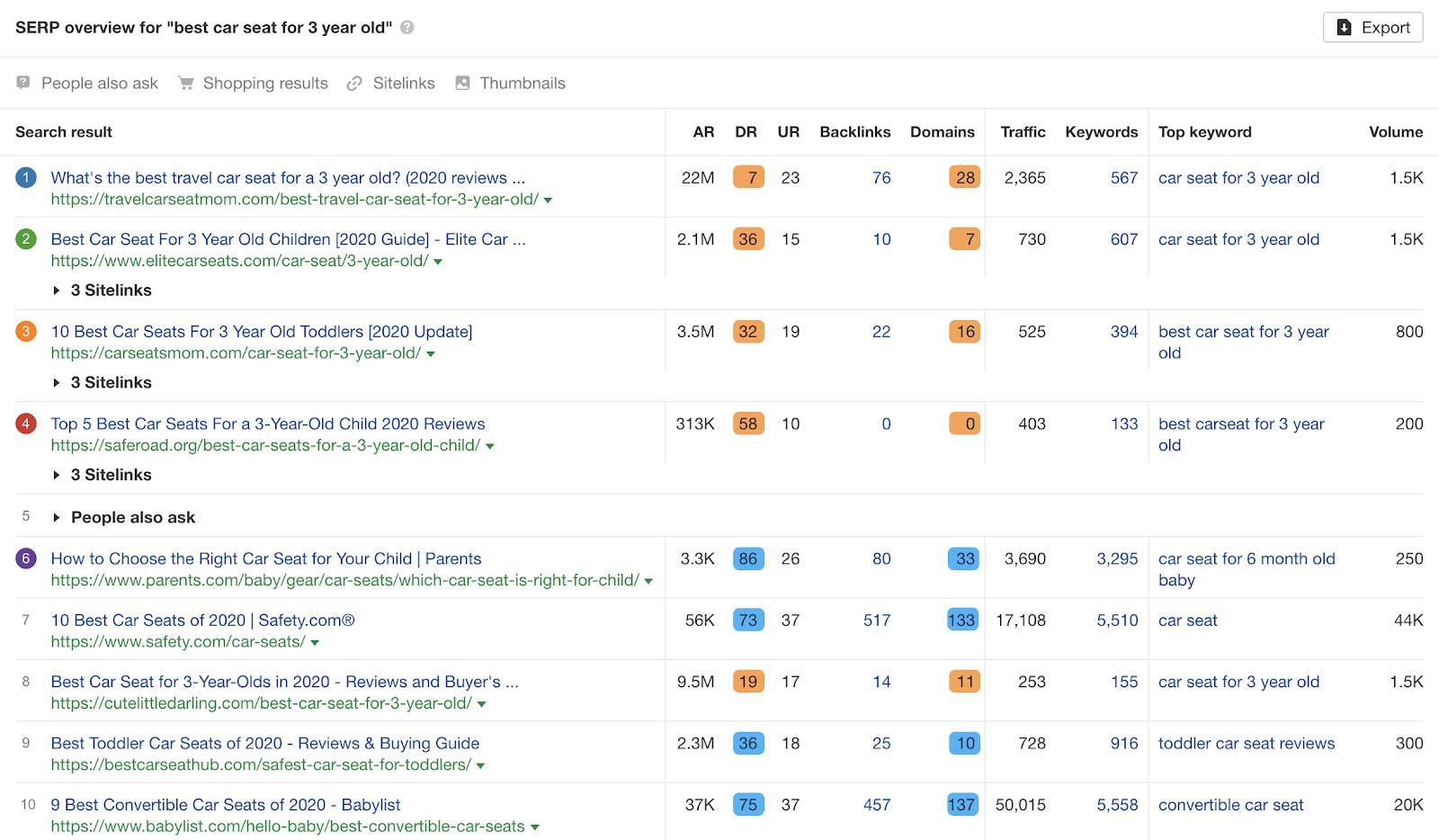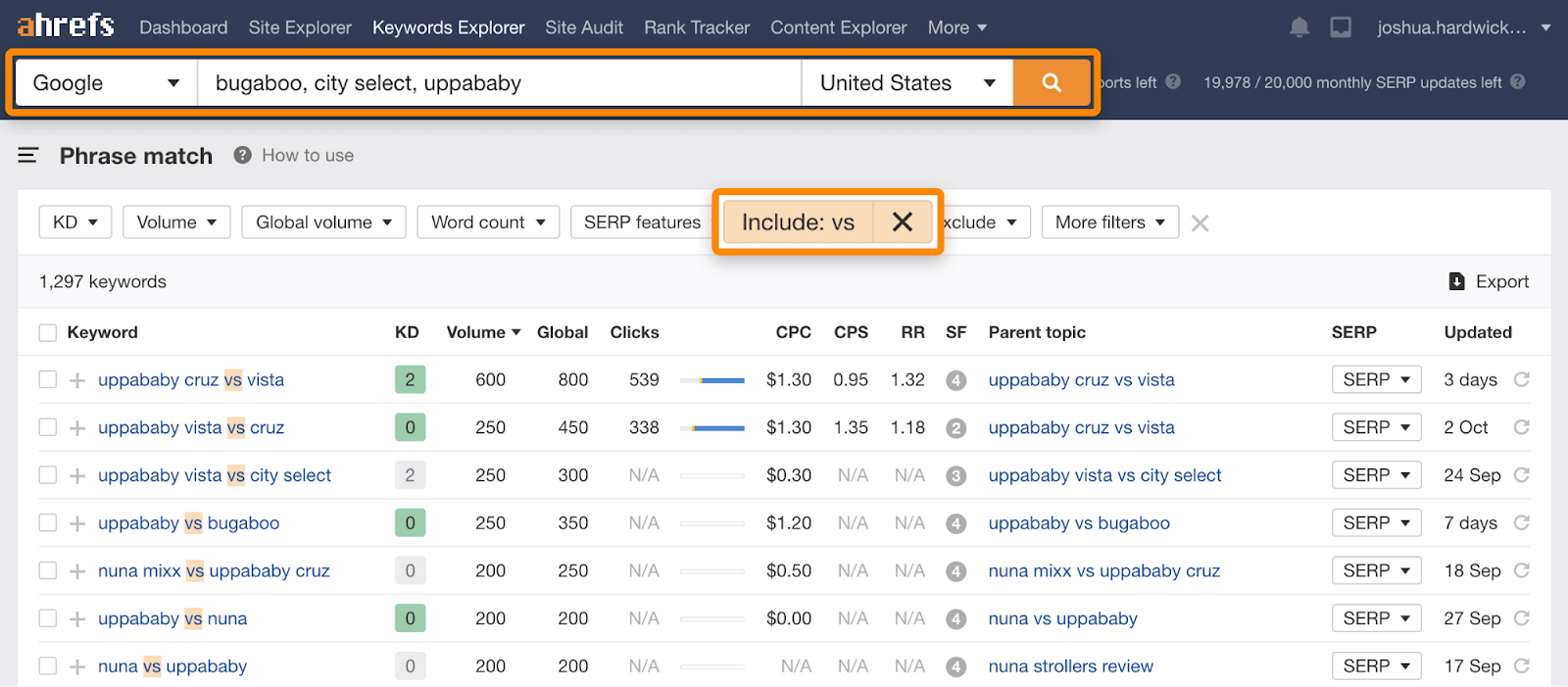ch#33 How to Do Keyword Research for Affiliate Sites
How to Do Keyword Research for Affiliate Sites
This approach tends to be lots of traffic, but no clicks, conversions, or revenue.
Luckily, there’s a simple solution: find keywords with lots of searches that you can rank for, which are about topics where you can naturally plug product recommendations.

The reason this is important comes down to search intent.
For example, someone searching for “best protein powder” is likely in the market for a product but wants to weigh up each option’s pros and cons before pulling the trigger. As a result, they’re quite likely to click and buy linked affiliate products in your post.
However, someone searching for “what is protein powder” is unlikely to make a purchase anytime soon. They’re probably just researching a paper or want to know the difference between the types of powder. It’s unlikely they’ll click and buy any linked affiliate products.
In this post, you’ll learn about the four best types of affiliate keywords to target.
If you’ve visited The Wirecutter, you’ll already be familiar with general comparison keywords. They follow the “best [product name]” format.
Here are a few examples:
- best strollers
- best carriers
- best baby bottles
It’s super easy to recommend products in these types of posts because their entire purpose is to compare products, and searchers are almost always in the market to purchase that type of product soon. You just need to help them decide which to buy.
To find them, start by searching for one or two broad keywords in Keywords Explorer. For instance, if your site reviews baby products, you might search for “baby” and “toddler.”
From here, go to the Phrase match report to see all keyword ideas that contain one or more of these words, then use the “Include” filter to find keywords that also contain the word “best.”

This should give you tons of topic ideas. If there are too many, you might want to narrow things down by filtering for keywords with low Keyword Difficulty scores, say under 10.
Just know that you shouldn’t only target low KD keywords because many of them compare low-value products like baby bathtubs, lotions, and wraps. While these keywords can help generate revenue, it’ll be a volume game. For that reason, you’ll also want to go after some keywords relating to products with higher price tags like car seats.
Of course, keywords comparing high-ticket items are often more competitive, but you can find relatively low-competition ones by looking for those that target a specific person or need. These usually follow the “best [product name] for [user]” format:
- best car seat for small car
- best carrier for newborn
- best stroller for travel
To find these, enter a few high-priced items into Keywords Explorer. If your site is about baby products, these might be “car seat,” “stroller,” and “crib.”
From here, go to the Phrase match report and use the “Include” filter to find keywords containing the words “best” and “for.” Just make sure the “all words” tab is selected, so both words are included.
You should then see a list of keywords that contain at least one of your high-ticket products and the words “best” and “for.”
However, these keywords don’t always have low KD scores, and that’s the case for “best car seat for 3 year old,” which has a KD score of 22. But if you click the SERP button, you’ll see that there’s a mix of search results. Some pages are specifically comparing car seats for 3 year olds, whereas others are more broadly comparing car seats.
However, you’ll notice that most of the more specific posts rank with low website authority and few referring domains. In contrast, the broader posts have more referring domains and come from higher-authority sites.

Assuming that we keep our post explicitly focused on car seats for three-year-olds, this could be a good topic.
Branded comparisons are keywords where the searcher wants to compare the differences between two branded products. For example:
- beats studio wireless vs bose qc35
- airpods vs airpods pro
- galaxy buds vs airpods
These keywords usually have lower search demand, but they convert very well because the searcher has already narrowed down their purchasing decision to just a couple of products.
The easiest way to find them is to enter a list of brands into a keyword research tool like Keywords Explorer, then go to the Phrase match report and use the “Include” filter to find keywords containing “vs.”
For example, if we wanted to find stroller comparisons, we could search for brands like Bugaboo, City Select, and Uppababy.

If you can’t think of any brands off the top of your head, check the categories and brand names on a relevant online store. In this case, we can check the navigation bar on buybuybaby.com, where there’s a “Shop by brand” category that lists a bunch of popular brands.
From our results in Keywords Explorer, “uppababy cruz vs vista” seems like a good low-hanging topic given that these strollers retail for $500 to over $1,000. And if we look at the SERP, we see that many top-ranking pages come from low-DR sites and have few referring domains, so it looks like they can be beaten quite easily.
Product reviews keywords are those where searchers are looking for detailed reviews of individual products. For example:
- bugaboo buffalo review
- uppababy vista review
- babyjogger city select review
These are perfect targets for affiliate sites because searchers are usually very close to making a purchase. They’ve already done their research, and something about a particular model struck a chord with them. Now they just want to read an in-depth review before pulling the trigger.
However, as with branded comparisons, search volumes for product reviews tend to be lackluster. So if you’re going to bother buying and reviewing products, make sure that you choose the ones people are actually searching for.
To find them, enter a few brand names into Keywords Explorer, go to the Phrase match report, then use the “Include” filter to find keywords containing the words “review.”

Comments
Post a Comment